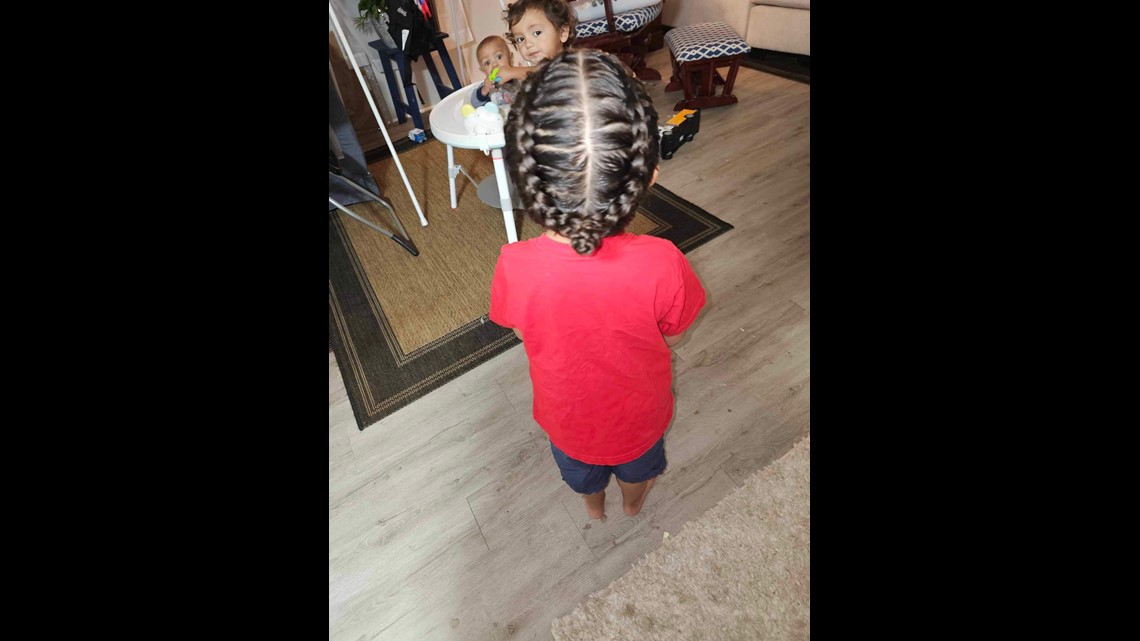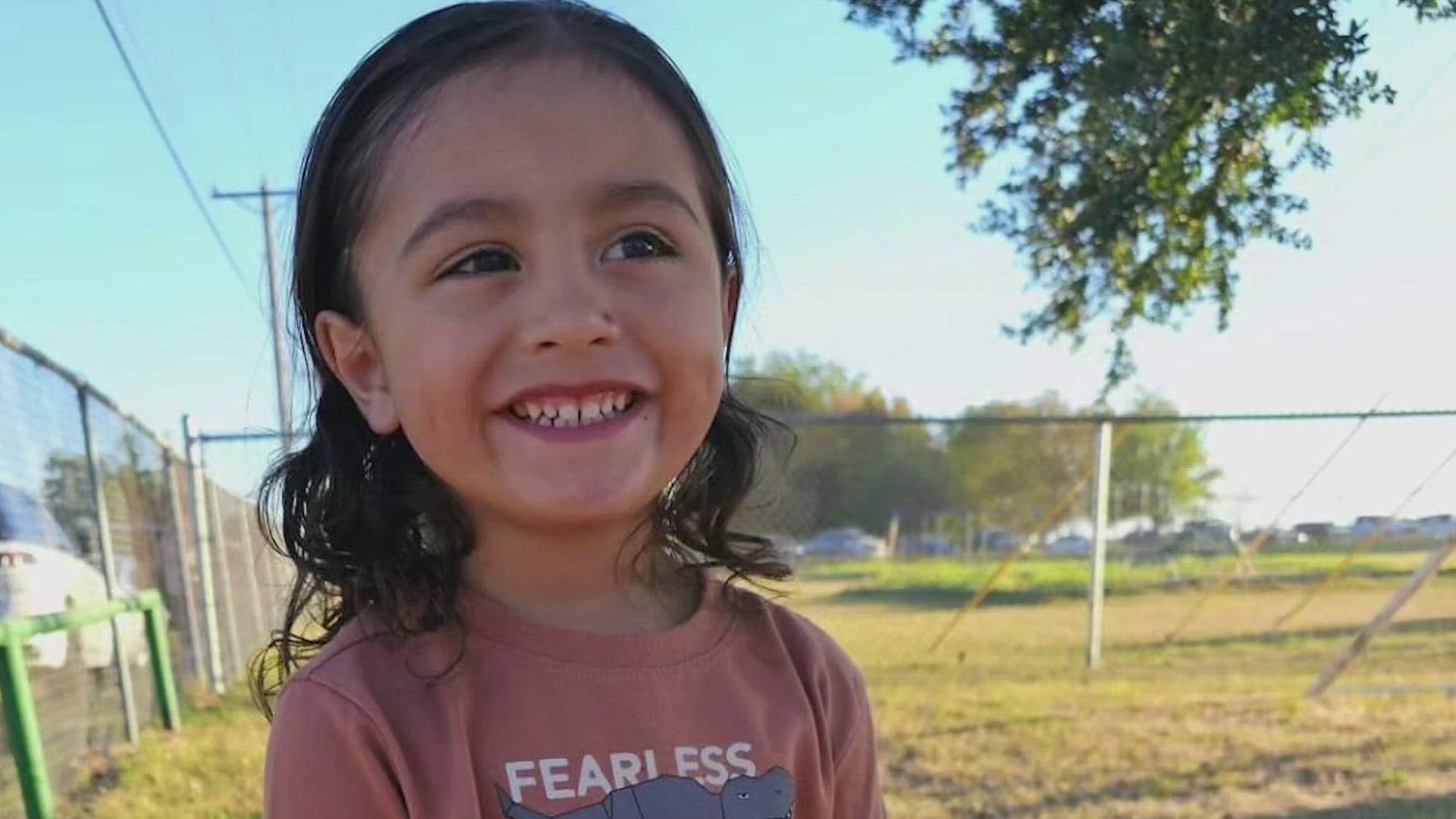MABANK, Texas — On the eve of the Crown Act taking effect in Texas, a single mom in Mabank says her fight over the length of her 4-year-old son’s hair has suddenly been averted.
Katheryn Huerta lost her husband Jose to cancer in December of 2020. At the time, their first son Memphis was 19 months old. And, she gave birth to their second son Jude just 13 days after her husband died.
“It was his dying wish for Memphis to grow his hair long. Not only that but it’s always been a part of their culture,” she said of her late husband.
But Huerta says that when Memphis went to his first day of Pre-K at Mabank ISD’s Lakeview Elementary, she was told his hair was not in compliance with the district dress code.
The Mabank ISD dress code states “a boy’s hair must not extend below shirt collar, the middle of the ear, or the top of their eyebrows." And "boys may not have ponytails, rat-tails, buns, or Mohawks.
So, Huerta says she braided her son’s hair instead to keep it off of his collar and out of his eyes. But she says she was told that did not meet the dress code either.
“Memphis must have his hair cut in their dress code in order to continue their PreK program,” she says she was told.


But, with the Texas Crown Act taking effect Friday, prohibiting raced-based hair discrimination in schools and workplaces, Huerta argued Memphis should be allowed to wear his hair any length they choose.
She says she was still told, no.


Mabank ISD did not respond to repeated requests by WFAA for comment. But then, late Thursday afternoon, Huerta texted to say the superintendent suddenly reversed course: telling her that given that multiple students have the same issue, the policy will be updated and Memphis does not have to cut his hair after all.
“They have decided to update the policy and allow him to wear his hair braided and the length in a bun,” she said of the message she received after picking up her son from PreK.
Texas is the 22nd state to pass the CROWN Act – Creating a Respectful and Open World for Natural Hair Act – which essentially prohibits employers, labor unions, and employment agencies, from discriminating against any employee “on the basis of hair texture or protective hairstyle associated with race.”

